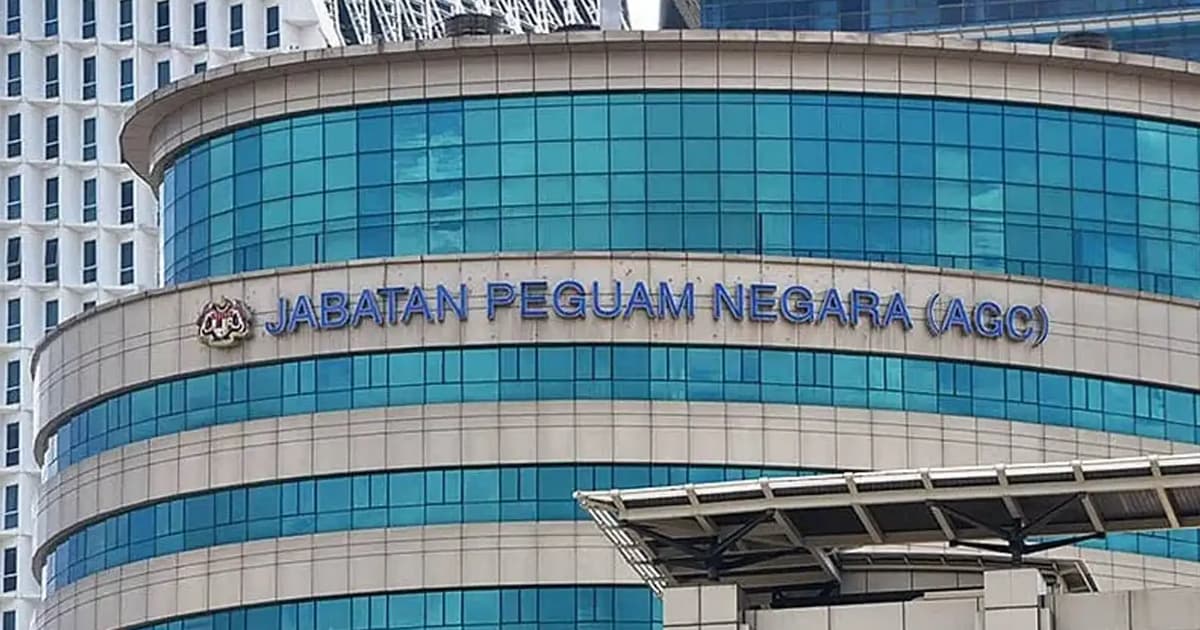
From Kua Kia Soong
At a time when Malaysians yearn for accountability and truth, the Attorney-General’s Chambers (AGC) has chosen the path of denial and obstruction.
Its decision to appeal the High Court judgment in favour of the families of Pastor Raymond Koh and activist Amri Che Mat is not only unconscionable, but a betrayal of justice, compassion, and the very principles that the Madani government champions.
The High Court’s ruling by Justice Su Tiang Joo was a landmark victory for truth. After years of anguish, the court finally affirmed what many Malaysians already knew: that the police and the government bore responsibility for the abductions of Koh and Amri.
Instead of defending the honour of the state by seeking accountability, the AGC is now appealing the decision – an act that can only be seen as protecting institutional impunity.
Su’s findings were unequivocal. He cited police involvement, wrongful case classification, and failures in investigation – systemic failings that violated the most basic principles of justice.
His judgments awarded over RM3 million to Amri’s wife, Norhayati Ariffin, and over RM37 million to Pastor Koh’s family. Those figures, however symbolic, represented a rare acknowledgment by the judiciary that the Malaysian state had failed its people.
By appealing this judgment, the AGC is not merely questioning legal reasoning – it is defying the moral weight of international law. Enforced disappearance is one of the most heinous human rights violations recognised under international conventions. It is condemned globally as a crime that “places the victim outside the protection of the law”.
A crime against humanity
The United Nations International Convention for the Protection of All Persons from Enforced Disappearance, which Malaysia has yet to ratify, declares that no exceptional circumstances, “whether a state of war or a threat of war, internal political instability or any other public emergency”, may justify such acts.
The UN Working Group on Enforced or Involuntary Disappearances has repeatedly reminded governments that enforced disappearance is not merely a domestic issue, it is an international crime under customary international law, potentially rising to the level of a crime against humanity when widespread or systematic.
In 2019, this same UN Working Group urged Malaysia to investigate the abductions of Koh and Amri and to bring the perpetrators to justice. It also called on the government to end impunity for such grave violations. Yet six years later, instead of delivering justice, the Malaysian state appears intent on silencing it – by appealing a decision that seeks to hold its own institutions accountable.
The High Court judgement exposes state complicity
The enforced disappearances of Koh in 2017 and Amri in 2016 were not random crimes. They were acts of intimidation against conscience, carried out with chilling precision – black SUVs, men in tactical gear, coordinated movements – all pointing to professional execution, not rogue criminality. These were abductions emblematic of authoritarian tactics seen elsewhere in the world, where state agents silence dissent under the cover of darkness.
If Malaysia wishes to be respected among democratic nations, it cannot afford to be seen as condoning such crimes. The Madani government’s credibility as a rights-respecting administration now hangs by a thread. To invoke “good governance” while appealing a judgment that exposes state complicity in enforced disappearances is hypocrisy of the highest order.
The international community has long condemned governments that use enforced disappearance as a weapon of fear, from Latin America’s “Dirty Wars” to modern-day authoritarian regimes. Malaysia must not allow itself to fall into that ignominious company. The government should be joining the ranks of nations that have outlawed such practices, compensated victims, and prosecuted those responsible, not shielding perpetrators behind legal technicalities.
Every day that Koh and Amri remain missing is a day that Malaysia’s conscience remains clouded. Every bureaucratic appeal, every refusal to face the truth, erodes our moral standing in the eyes of the world.
The AGC must withdraw its shameful appeal. The government must heed the UN’s calls, ratify the International Convention on Enforced Disappearance, and demonstrate the moral courage it preaches. Until it does so, the words “Madani” and “good governance” will ring hollow.
Justice delayed is justice denied. But to appeal this judgment is to desecrate justice itself – and to place Malaysia among those states that the world condemns for crimes of disappearance and silence.
Kua Kia Soong is a former MP and former director of Suaram.
The views expressed are those of the writer and do not necessarily reflect those of FMT.






